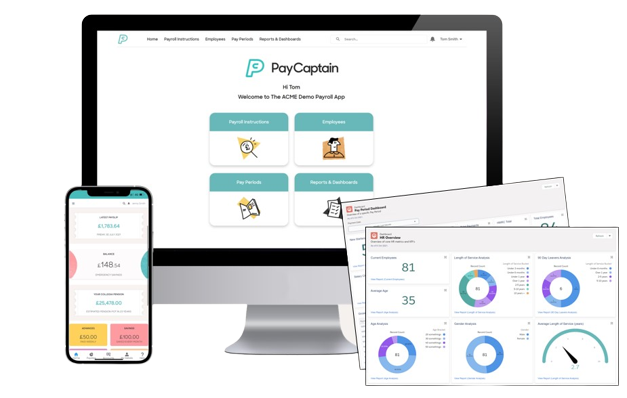Bitcoin is a digital or virtual currency that uses cryptography to secure its transactions and to control the creation of new units. Bitcoin was invented in 2009 by Satoshi Nakamoto.
It's a decentralised currency, meaning that it does not rely on a central authority to manage its worth or conduct transactions. Bitcoin is regulated by a peer-to-peer network, which allows users to manage their own bitcoin wallets and transactions.
Bitcoin is the most well-known and valuable cryptocurrency, but there have been many others created in recent years. All are regulated by peer-to-peer networks.
Bitcoin transactions are verified by network nodes through cryptography and recorded in a public dispersed ledger called a blockchain. Network nodes are commonly referred to as Blockchain Nodes. A node, in the world of cryptocurrency, is a network computer. Nodes execute certain functions like creating, receiving or sending information.
Bitcoin is unique because there is a finite number of 21 million bitcoin, so the value fluctuates based on supply and demand.
Bitcoins can be used to buy goods and services online, or they can be cashed out into traditional currency like US dollars.
Other cryptocurrencies
Bitcoin is not the only cryptocurrency on the market. There are a number of different cryptocurrencies, including Ethereum, Litecoin, and Bitcoin Cash. These currencies work in the same way as bitcoin and can be used to purchase goods and services online or cashed out into traditional currency.
What is the current value of Bitcoin?
As bitcoin becomes more popular, its value has increased exponentially. In early 2017, one bitcoin was worth US$1,000. At the date of writing, one bitcoin is worth over US$38,000.
The price per bitcoin peaked at over US$65,000 in February 2021, April 2021 and November 2021.
What are the benefits of Bitcoin and other cryptocurrencies?
The benefits of bitcoin and other cryptocurrencies include security, privacy, decentralisation, low fees, globalality, open source and trading in the free market.
- Security - Bitcoin and other cryptocurrencies are secure because they use cryptography. This means that the transactions are encrypted and can only be read by the parties involved. It also means that new units of bitcoin cannot be created without the consent of the majority of the network nodes.
- Privacy - Cryptocurrencies offer privacy because they are decentralised. This means that they can’t be traced nor the value of the currency controlled. Cryptocurrencies can also be used to conduct transactions anonymously.
- Decentralised - Bitcoin and other cryptocurrencies are decentralised, meaning that there is no central authority controlling them. This can provide greater security and privacy for users, as well as reduce the risk of fraud or censorship. It also makes bitcoin a global currency.
- Low fees - Cryptocurrencies have low fees because there is no central authority that set fees. Bitcoin and other cryptocurrencies can be sent anywhere in the world for free.
- Open source - Bitcoin and other cryptocurrencies are open source, meaning that the code is available to the public for inspection. This allows anyone to contribute to the development of cryptocurrencies.
- Free market - the value of cryptocurrencies is determined by the free market, meaning that their worth can fluctuate based on supply and demand.
What are the risks of Bitcoin and other cryptocurrencies?
Whilst there are a number of benefits of cryptocurrencies, there are also some risks.These include price volatility, scams and fraud, uncertain regulation, hacking and theft.
- Volatility - The value of bitcoin and other cryptocurrencies can be very volatile, meaning that it can go up or down a lot in value. There are some dramatic fluctuations, even on a day-to-day basis.
- Scams - There are a lot of scams involving bitcoin and othercryptocurrencies, both from people alleging to have bitcoin for sale and for fraudsters who demand payment in bitcoin. Because there is no central managing authority, cryptocurrency payments are the preferred choice for fraudsters.
- Uncertain Regulation - The regulation of bitcoin and othercryptocurrencies is still uncertain. This means that it is possible that the government could start to regulate them in the future, which could have a negative impact on their value. This also creates uncertainty and instability in the market.
- Hacking and theft - As cryptocurrencies are digital, they are susceptible to hacking and theft.
How do you buy bitcoin?
There are a few different ways to purchase bitcoin. The most common way is through an online bitcoin exchange. You can also buy bitcoin from people who have them and want to sell them.
Once you have bitcoin, you can use it to purchase goods and services online or you can cash it out into traditional currency. To do this, you'll need to find a bitcoin ATM or a bitcoin broker. Bitcoin ATMs allow you to exchange bitcoin for traditional currency, and bitcoin brokers let you buy traditional currency with bitcoin.
How do you cash out bitcoin?
The process of cashing out bitcoin is similar to that of buying bitcoin. You'll need to find an online bitcoin exchange, a bitcoin ATM, or a bitcoin broker. Then, you'll need to transfer your bitcoin into traditional currency. You can then use that traditional currency to buy goods and services online or withdraw it from an ATM.
Why use bitcoin?
There are a number of reasons why people use bitcoin. Some people prefer bitcoin because it's decentralised, meaning there is no government or financial institution controlling it. Others like bitcoin because it's secure; bitcoin transactions are verified by network nodes through cryptography and recorded in a public dispersed ledger called a blockchain. And some people simply find bitcoin to be more convenient than traditional currency.
Whatever your reason for wanting to know about bitcoin, it's important to stay informed about this rapidly growing currency. For more information, consult a bitcoin expert or visit a website like www.bitcoin.org

















